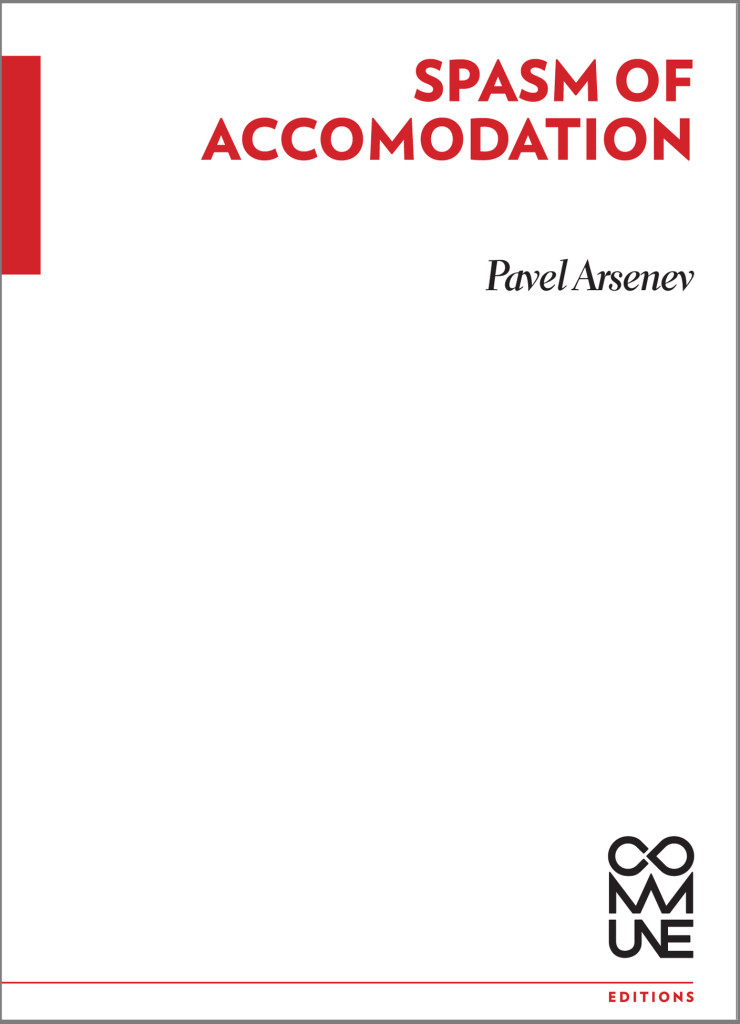- Pavel Arsenev. Spasm of accomodation (Berkeley: Commune Editions, 2017)
Калифорния:
19 апреля: Чтения Сommune Books: Павел Арсеньев и Нанни Балестрини. Начало 19.30
26 апреля: Университет Калифорнии (Dwinelle Hall, Room 3335). Начало 17:30
27 апреля: Стэнфордский университет (William R. Hewlett Teaching Center 201). Начало 18.30
Нью-Йорк:
1 мая: Ночь анархистской культуры. Начало 20.00
3 мая: Редакция n+1. Начало 19.30
Arsenev’s texts are explicitly political although here one does not mean “politics” in the proper sense of the word, as it were. It could be that the difference between these texts and a poem that would break a window glass is minimal. Apart from explicitly conceptual moves and codes that are present but are not perceived as codes (they rather seem to be organic), one device is repeated often and attracts the attention. It is a risky play between the plane of the sensible (driven by a political fury) and the plane of a detached distance with regards to the speech. The detachment is folded into the very intention of speech, its self-referentiality. The poem breaks a window only when it has gained necessary discursive solidity and thickness. It becomes a stone not only due to an affective charge, inspiration, intuition, a right choice of words but due to its self-referentiality, a self-spun quality, a fundamental verbal integrity and opacity. In a way, we are dealing with a utilitarian poetics: Arsenev’s verses fit within the tradition of turning poetry into prose performing that transformation in a very expressive way, distinct from a private, vulgar, subjective prose-making. The goal of these texts, according to its author, is to “produce the ways of speech production.” This jumble of words and discursive ruins paradoxically forms clots of the sublime, even potentially sublime. For instance, the political and the poetic speech in “A Response to One Provocative Exhibition” is potentially sublime and militantly charged and is opposed to a collective clot of hatred. In that poem there is nothing but hate speech. Its collective and impersonal nature allows to abandon the idea of private or moral sources of hatred and leads to the reflection on a universal propaganda machine that is now operating in the heads of many Russians. This fantastic, absurd reality, a neighboring reality, in which Pushkin-nigger is seen as Russia’s archenemy is not as stereotypical as it seems to be. Arsenev’s poetry is predicated upon that probability, upon that possibility of an alternative response. In that sense, they appear to call for poetic production, to the desire to produce the possibility of speech.
Galina Rymbu / Transl. A. Shvets
